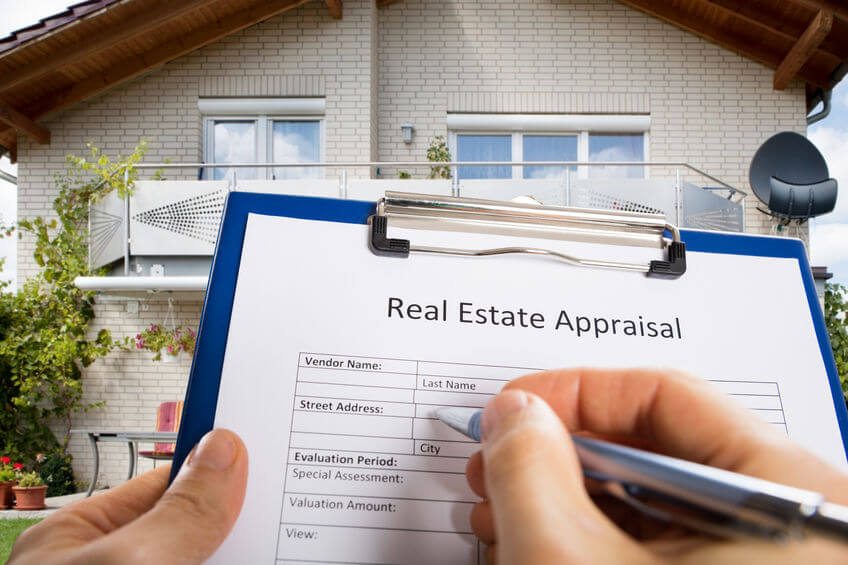Beyond Market Trends: Real Estate Appraisers Decode Residential Property Value
Unlocking the Tricks of Realty Assessment: Exactly How to Guarantee Accurate Assessment for Your Residential Or Commercial Property
In the realm of property, the process of property assessment holds a pivotal role in establishing its market value. As residential or commercial property proprietors or possible purchasers, comprehending the complex systems behind this valuation can substantially affect the end result of transactions. From the nuanced variables that sway assessment figures to the methods utilized to reinforce building well worth, a detailed comprehension of these aspects can be the separating aspect in between a successful deal and a missed out on chance. By untangling the secrets of property assessment, one can browse this complicated surface with self-confidence and guarantee that their residential property is accurately valued.
Comprehending Property Evaluation Fundamentals
Residential or commercial property evaluation includes assessing numerous factors that contribute to the total worth of a building. One basic element is the property's place, which considerably influences its market value.
In addition, the existing market patterns and economic conditions affect the evaluation procedure. An understanding of exactly how these external variables influence residential or commercial property values is essential for conducting an extensive appraisal. Furthermore, the objective of the appraisal, whether it be for investment analysis, insurance coverage purposes, or real estate tax evaluation, can influence the strategy absorbed determining the home's worth.

Variables Influencing Home Assessment
Examining the wide variety of factors that impact residential or commercial property assessment is necessary for performing a complete and precise evaluation. One essential component affecting property appraisal is the area. Factors such as distance to features, colleges, public transport, and possibility for advancement can significantly affect the building's value. The property's size and condition also play an essential duty in its assessment. Larger residential properties have a tendency to have greater worths, while the total problem of the home, including age, maintenance, and structural stability, can impact its appraisal.
Market trends and financial conditions are other essential factors that appraisers consider. Supply and demand dynamics, rate of interest prices, and the general state of the economic situation can affect just how much a residential property is worth. In addition, the residential property's special functions, such as architectural style, format, and special amenities, can affect its evaluation value.
Furthermore, environmental aspects like natural catastrophes, air pollution, and closeness to hazardous sites can likewise impact building evaluation. Comprehending and evaluating these various elements are necessary for ensuring an accurate and extensive building appraisal.
Relevance of Comparable Sales Evaluation
Carrying out a detailed comparable sales analysis is crucial in figuring out the precise assessment of a residential property in the genuine estate assessment procedure. Similar sales, likewise referred to as "compensations," describe lately marketed properties that are comparable to the subject home in terms of area, size, problem, and various other relevant functions. By examining these equivalent sales, evaluators can acquire valuable understandings right into the existing market fads, need, and pricing characteristics that straight influence the residential property's worth.
In addition, comparing the subject residential or commercial property to lately marketed comparables enables appraisers to factor in any kind of one-of-a-kind features or shortages that might influence its worth positively or adversely. Ultimately, a thorough comparable sales analysis ensures that the residential property evaluation is precise, reputable, and reflective useful content of current market problems.
Strategies for Improving Residential Or Commercial Property Value
In light of the understandings gained from an extensive equivalent sales evaluation, carrying out critical steps to enhance home value becomes paramount in real estate evaluation. One effective strategy is improving visual appeal, as very first impressions considerably affect a residential or commercial property's viewed worth. This can be attained with landscaping, fresh paint, and properly maintained exteriors. Improvements and upgrades to essential areas such as kitchens and shower rooms can also yield significant rois by improving the property and increasing its desirability.
Furthermore, optimizing the building design to make best use of capability and area usage can attract investigate this site prospective customers or renters. This might include reconfiguring rooms, including storage space services, or creating multifunctional areas. Energy-efficient upgrades, such as mounting solar panels or boosting insulation, not just raise building worth yet likewise interest environmentally-conscious individuals.
Last but not least, remaining educated concerning market trends and buyer preferences is critical for making educated decisions regarding residential or commercial property renovations. Understanding what features are in high need can assist critical upgrades that straighten with market expectations, eventually improving the residential property's general value.
Navigating the Real Estate Assessment Process

After collecting all appropriate data, the following action involves using different appraisal approaches to identify the residential property's worth precisely. These methods might consist of the sales comparison approach, price technique, and income technique, relying on the type of property being assessed. The last appraisal record will certainly detail the evaluator's findings, including the building's estimated value and the thinking behind the valuation.
Navigating the property assessment process calls for collaboration in between the property owner, appraiser, and any other engaged events to ensure a smooth and accurate assessment.
Conclusion
To conclude, precise residential property evaluation is important for establishing truth worth of a building. By recognizing the basics of residential property evaluation, assessing variables that affect assessment, utilizing comparable sales data, and implementing strategies to improve residential property worth, homeowner can make sure a fair and Recommended Site precise assessment procedure - Real Estate Appraiser. Navigating the realty appraisal process with a clear understanding of these essential components will aid homeowner make informed choices about their financial investments